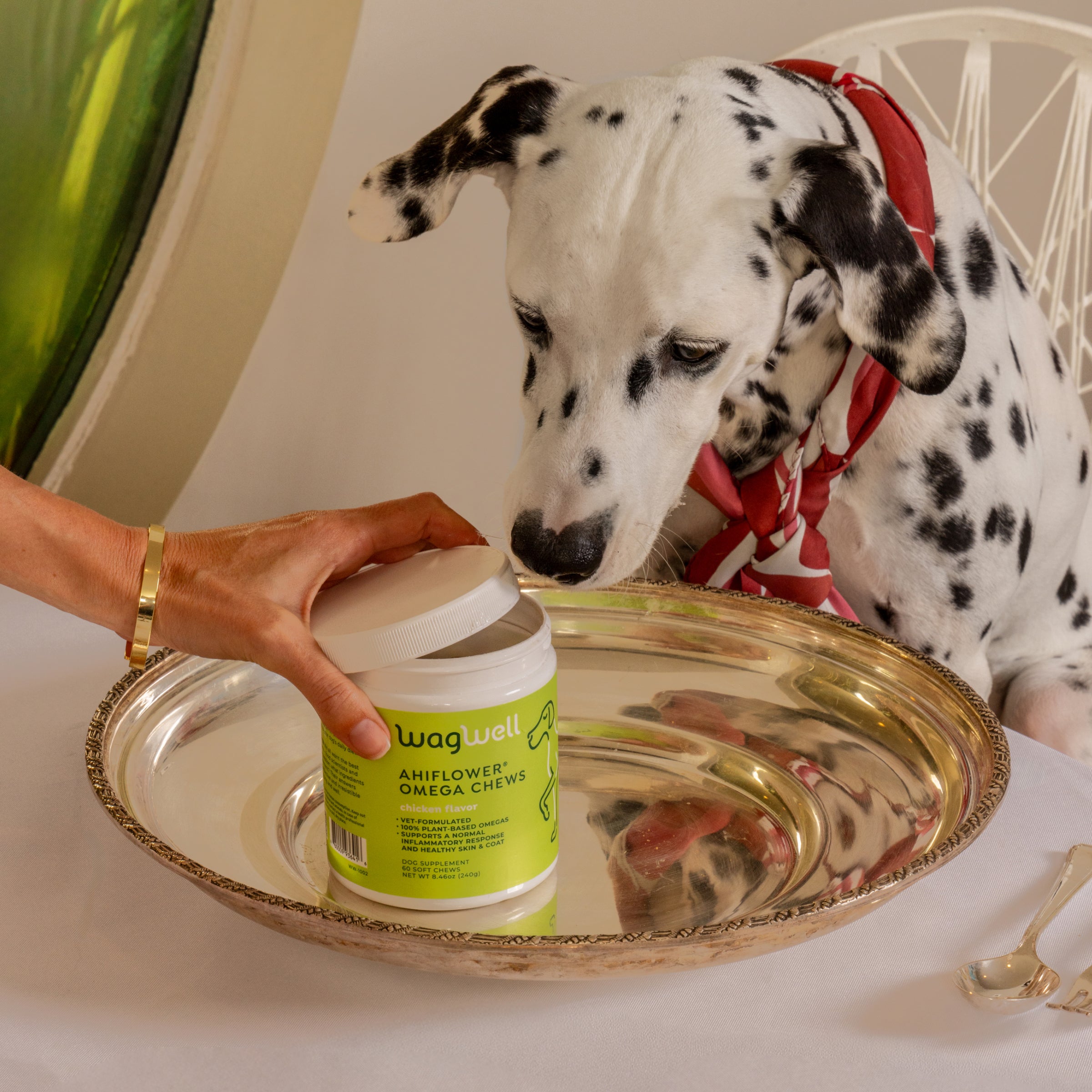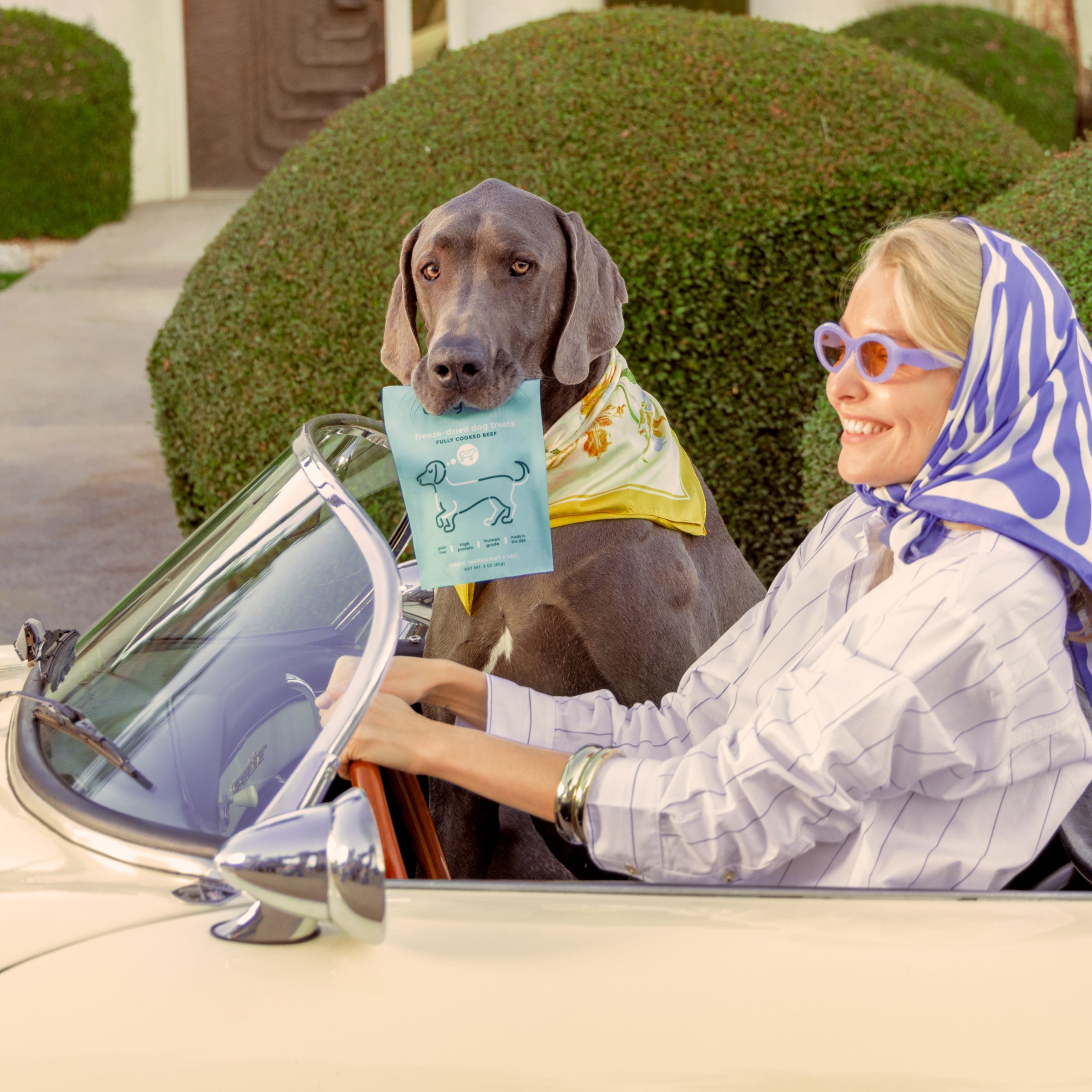Oh, the green pastures of the countryside. Nothing quite like driving through back roads and seeing… wait, dogs eating grass? That doesn’t seem right. Most dog owners go through the questionable period of wondering if their pet is secretly a cow-in-dog’s-clothing.
Your first thought might be, “I feed my dog nutritious food every day. Why do they feel the need to chomp on some grass?” The Answer? It could be from various triggers, ranging from “your dog just wants attention” to “your dog has stomach issues.”
Diet, Diet, Diet
Just like humans, a healthy and balanced diet is important for the longevity and quality of life of dogs. With all the offerings on the market, it can be difficult to determine what will be the best for your pet. Every brand and line of food will have a different breakdown of various nutrients such as fats, proteins, and carbs–each unique composition could affect your dog differently.
When your dog lacks the proper nutrients, it can lead them to eat grass as a source of fiber. Their bodies might crave this essential nutrient and thus will seek other sources–grass being the most readily available to most pups. If your dog routinely eats grass, consider implementing other forms of fiber into their diet.
If the issue persists, you can speak with your veterinarians about the optimal diet/pet food for your dog. They can determine whether your dog should be moved to a different brand or if they need supplementation of certain nutrients.
“Mom, I’m Bored!”
This is what your dog might be screaming at you. Enrichment is an invaluable tool for all pet owners–not enough mental exercise, and you might be watching your dog eat grass on your next walk. Dogs, like us, can get bored easily. If they’re not mentally stimulated, they might resort to grass as an outlet for their frustration.
Alternatively, your dog’s day revolves around you and your habits. If you’re not paying enough attention to your beloved pet and are going through the motions, they might eat grass as an attention-seeking behavior. They know they’ll likely get your attention and a sharp “No, don’t eat that!” if they continue.
Uh, Oh! Tummy Issues
If your dog is suffering from stomach issues, they might eat grass in an attempt to soothe their nausea. While this might be an instinctual action, grass is high in fiber, which can help soothe stomach problems. Smart boy! However, it’s essential to monitor your dog closely after they eat grass.
Eating grass might be able to lower the stomach’s pH level, lessening the pain, but it won’t do your dog many other favors. Grass can also irritate the stomach; this could lead your dog to vomit it back it up. So, while it’s a natural remedy for stomach woes, it’s not always the best solution for your pup’s stomach pain. You should be sure to consult your veterinarian to rule out any health concerns if the behavior is prolonged.
Should You Be Worried?
While it’s common for dogs to munch on grass from time to time, you may wonder if it’s something to be concerned about. In most cases, occasional grass-eating isn’t harmful, but there are potential risks to consider.
- Potential Contaminants: The grass itself might not be the issue, but what’s on it. Pesticides, fertilizers, and other chemicals used in lawn maintenance can be toxic to dogs if ingested in large quantities. Even if the grass is untreated, there’s always a risk of it being contaminated with bacteria, parasites, or other harmful substances.
- Worsening Digestive Problems: While grass can provide temporary relief for an upset stomach, it can also exacerbate digestive problems. The rough texture of grass can irritate the stomach lining, leading to vomiting, diarrhea, or even gastrointestinal obstruction if large amounts are consumer. This can be especially dangerous if the grass forms a tangled mass in the digestive tract, potentially causing blockages.
- Potential Behavioral Problems: If your dog regularly eats grass out of boredom or as a behavioral issue, it could indicate an underlying issue that needs addressing. Chronic grass-eating may lead to nutritional deficiencies if it replaces a balanced diet. It may also be a sign of anxiety or stress that requires concern.
Occasional grass-eating is usually not a cause for concern, but it’s essential to monitor your dog’s behavior and the surrounding circumstances. If you notice excessive grass consumption, signs of illness, or behavioral changes, it’s best to consult your veterinarian to ensure your pup stays happy and healthy.


